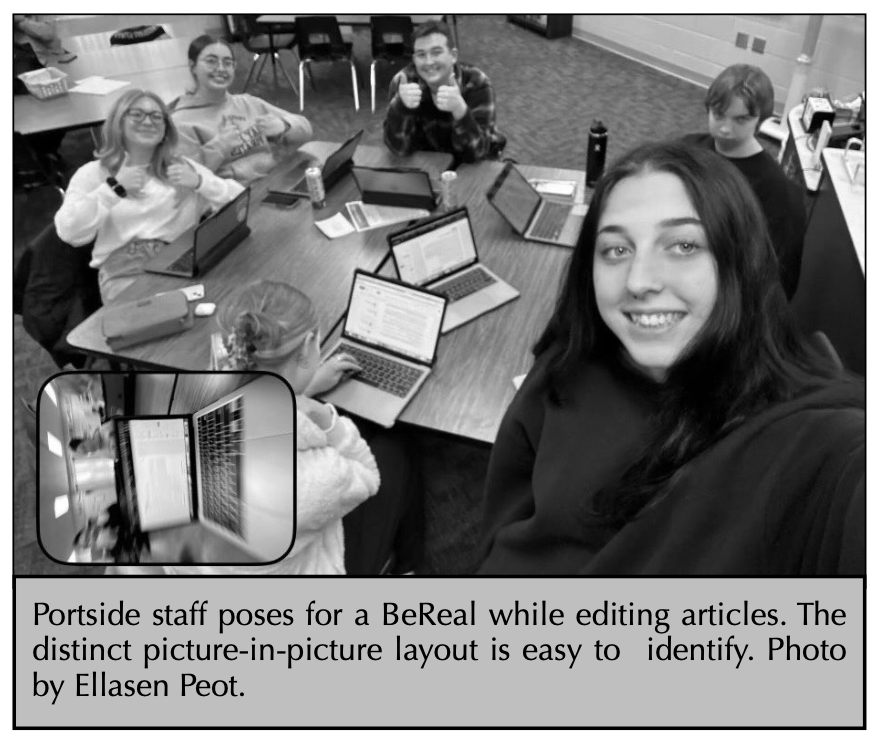BeReal not as ‘so real’ or authentic as it seems
Flyaway hair. Retake it. Don’t like the angle. Retake it. Mascara smudged. Retake it. Does this lighting make me look weird? Retake it.
Social media apps like Instagram are meant to present yourself in a certain way. The goal is to make yourself look perfect, with a jealousy-inducing life. This sort of pressure often affects teenagers’ perceptions of themselves and others.
Social media offers people a unique opportunity to carefully curate themselves into the “perfect” version of themself. Social media creates a silent competition between people to battle about having a higher number of followers on their accounts. For teenagers, this creates an unrealistic standard for themselves and their lives.
BeReal is a new social media company that has risen in popularity over the past year with 73.5 million active monthly users. Over 20 million people access the app daily. According the Apptopia, the app has been downloaded 80 million times since its launch, with most of the downloads being in 2022. It prides itself on being a low stress and authentic take on social media.
The app sends its users a notification once a day at any random time and you have a two minute timer to post what you are doing at that time. The app takes a picture with both your back and front camera to show other users what you are doing, and where you are in the world, creating a distinct picture-in-picture layout. The app was created to offer a new and refreshing way to use social media.
The app doesn’t offer any type of filter or editing, and you can’t take a picture in a different app then upload it to BeReal. On BeReal’s official website it claims to be a “new and unique way to discover who your friends really are in their day to day life.” However, as more teenagers download the app, many have started to question its premise on being more authentic and traditional than other social media.
To promote culture authenticity, BeReal reveals how many hours after the notification the user posted the photo. The app will reveal the exact time, down to the second the user posted the photo and if they did it within the two minute window after the notification has been sent out. It also tells viewers the amount of retakes the user took while they were taking the photo. The app showing the amount of retakes tries to encourage users to be authentic and show what you are really up to and what you look like. However, this can be outsmarted by simply closing the app. Users outsmarting the ways of BeReal can take away from the app’s entire premise.
One of the app’s primary purposes is to capture what a person looks like at any given moment throughout the day. But even that may not be working as intended.
1:58 PM, your phone buzzes with a notification from BeReal, but you’re not wearing makeup, your hair is not done, your room is messy, you don’t like your outfit, you’re not doing anything cool. Now what? Post it later when you’re doing something you want to show off.
Aimed to be one of the only authentic online experiences, teenagers are programmed to only show their best selves online. Therefore, there will never be anything truly authentic online.
Besides the functional issues that allow users to “cheat” the system and override the app’s purpose, there may be other problems with the app’s overall mission – the idea of an “authentic” social media platform.
Social media platforms distinguish themselves from other apps by providing users the opportunity to showcase themselves and their differences. Even though no platform may ever get to see someone’s “true” self, that doesn’t mean that authenticity is completely nonexistent in online spaces. It may be impossible for any social media to obtain what BeReal strives for: a genuinely authentic online experience. At the end of the day, BeReal is simply just another social media platform and whether it has a positive or negative impact is up to its users.




